The answer starts with our mission to care for and recover rivers and wild and native fish
Congress did something very unusual over the past year. It passed and the President signed into law two huge pieces of legislation that will provide great benefits for trout and salmon for many decades to come.
Some people loved the infrastructure and climate change laws, some people hated them. But for an old D.C. hand who has had the honor of representing Trout Unlimited members and staff for almost 30 years in Washington, I want to tell you why these laws are so good for wild and native trout and salmon, and so beneficial to TU and the rivers, landscapes, and communities in which we work around the country.
And I want to say thank you from the bottom of my heart for the help of literally thousands of TU staff and volunteers who have invested thousands of hours into making these laws possible.
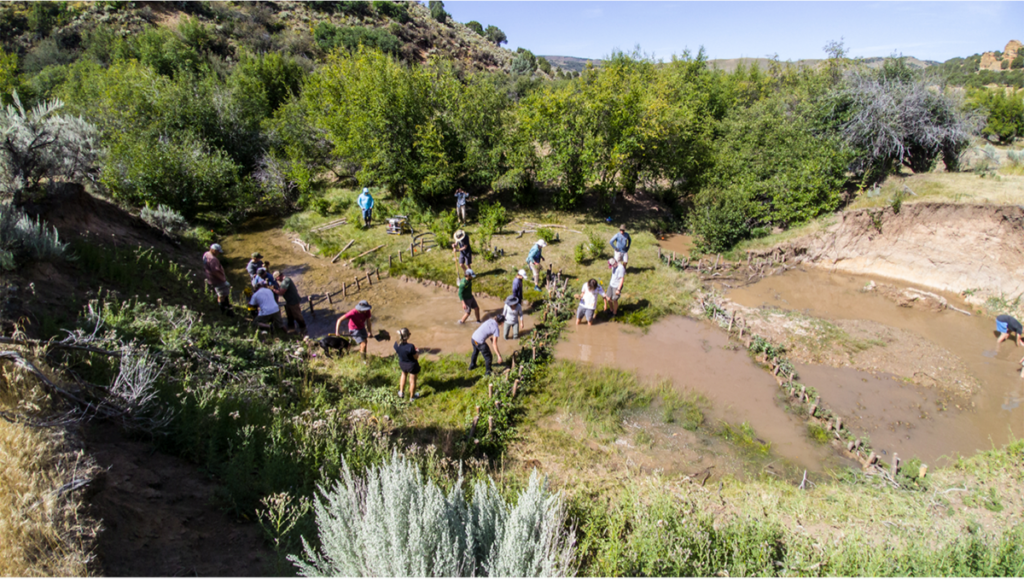
For TU, it all starts with our mission: To bring together diverse interests to care for and recover rivers and streams so our children can experience the joy of wild and native trout and salmon.
We are for legislation that fulfills our mission. We oppose legislation that is against our mission. And we do not work on or promote TU views on legislation that does not relate to our mission.
There is no doubt that the infrastructure and climate laws fulfill our mission. They provide funding for fish passage and fisheries restoration on public and private lands, for water conservation in the drought-stricken West, and for abandoned mine cleanup in rural America, from Eastern coal country to Western hardrock mining lands. They will help TU work with many more farmers and ranchers to restore streams, and work with states to fix road stream crossings and remove barriers to fish movement. They will reform oil and gas leasing on federal lands, promoting responsible energy development and protecting fish and wildlife on some of our most special landscapes.
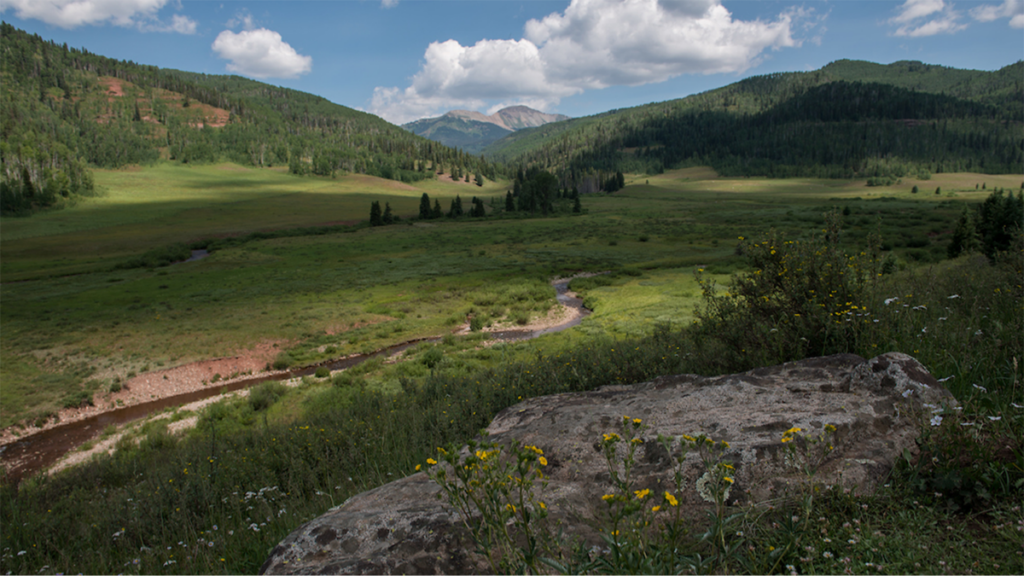
Passing laws like this is hard work, built in large part on relationships we develop with lawmakers, agencies, and conservation partners. Nothing good happens unless we have good, long-term, trusting relationships. There are a dozens of stories of positive relationships behind these laws, but allow me a moment to tell you about two of them that speak loudly to the strength of our relationships.
Fish passage
On September 10, 2001, one day before 9/11, a group of fisheries conservationists, state agencies, and staff from the U.S. Fish and Wildlife Service Fish and Aquatic Conservation program gathered in Wichita, Kansas, to put the finishing touches on a new strategic plan. The FWS had long been dominated by National Wildlife Refuges, national fish hatcheries, and endangered species protection, but we were all searching for new ways to put the “fish habitat” in the Fish and Wildlife Service. Starting a new program that focused on removing barriers to fish migration–for trout, salmon, shad, eels—seemed like a huge strategic opportunity. The FWS Fish Passage program was born.
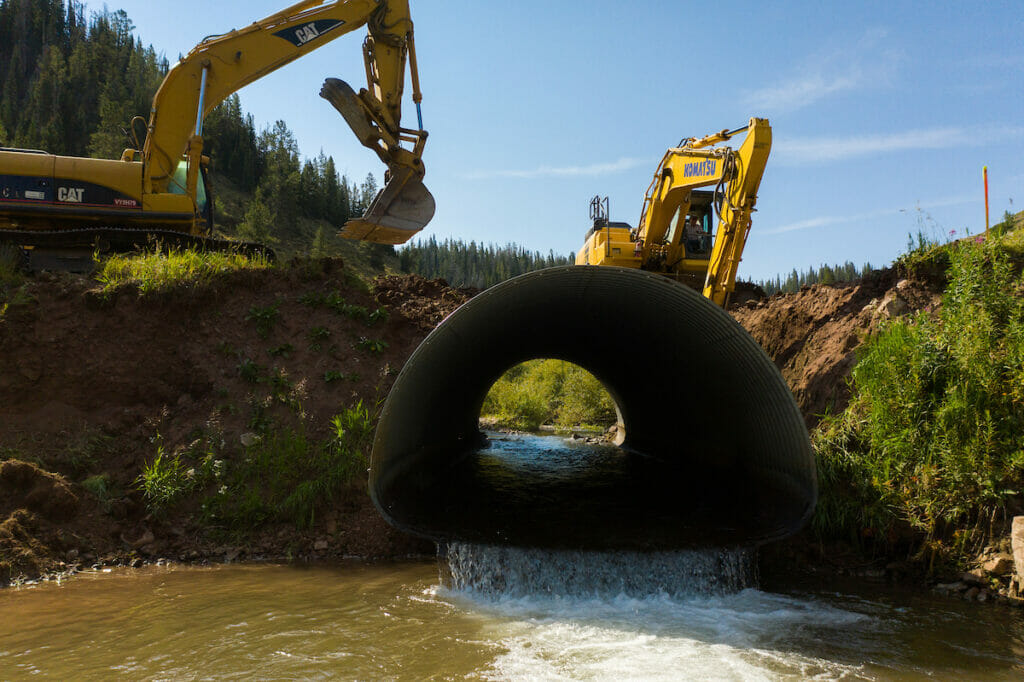
We used our good working relationships with Congressional appropriations committees to get the first million dollars allocated to it in 2006. It was the start of a small but mighty program that has produced incredible results for trout and salmon restoration. In virtually every part of the TU universe, the Fish Passage program has produced results, often catalyzed by TU field staff, landowners, and state agency partners. It helped to fund the Penobscot River restoration project in Maine, which opened 1,000 miles of habitat for Atlantic salmon. Most recently, it opened 50 miles of habitat for cutthroat trout on Spread Creek near the Grand Teton National Park in Wyoming.
Thanks to its great results, support for the program has grown over the years, reaching a high of $18 million per year in 2020.
Then, last year, Congress was looking for natural infrastructure programs that would provide a high return on investment to include in its Bipartisan Infrastructure Law. At the urging of TU, other conservationists, and the hydropower industry, Congress—with bipartisan support—gave the program $200 million over five years. At $40 million per year, that’s more than twice the usual annual allocation.
At TU, we know this funding will bear fruit, because we have helped to make the program happen.
We can tell similar stories for a dozen other programs that are receiving substantial new funding from these two laws. TU has developed excellent relationships over the years with the resource agencies that oversee the programs, including the U.S. Forest Service, the Bureau of Land Management, the Natural Resources Conservation Service, the National Oceanic and Atmospheric Administration, and the Bureau of Reclamation.
There are challenges that must be met to assure that the funds are well spent, but we are optimistic, because we have built trusting relationships that will help us solve the problems that arise.
TU, West Virginia, and Joe Manchin
TU’s positive relationship with U.S. Sen. Joe Manchin, chair of the Senate Energy and Natural Resource Committee, also gave TU a seat at the table to provide input as the infrastructure and climate laws were developed. Senator Manchin helped to broker both the Bipartisan Infrastructure Law, and the partisan Inflation Reduction Act. As a moderate deciding vote in a 50-50 Senate, he is always in the middle of the action.
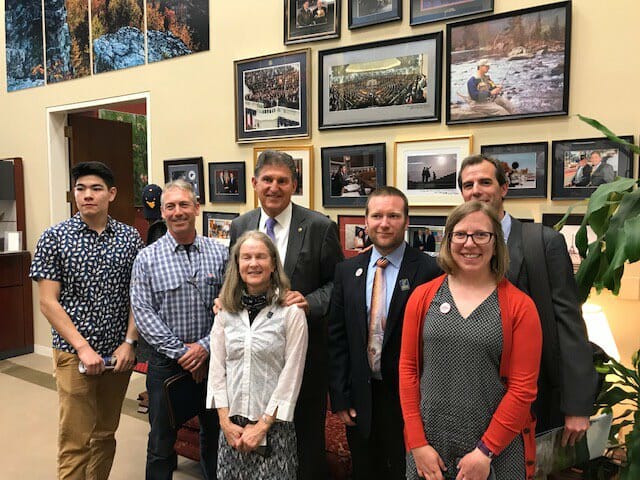
The senator is an avid hunter and angler, and he loves the work our staff and volunteers are doing in West Virginia with landowners to restore the Upper Potomac River, headwaters of the river that runs through the Capitol. He went far out of his way to support us in our successful effort to stop the proposed Pebble mine and protect the epic salmon runs of the Bristol Bay region of Alaska.
Some people love Senator Manchin. Some people don’t. But Trout Unlimited staff and volunteers have invested the time to get to know him, have developed common ground with him, and have worked well with him and his staff. As he worked with other members to develop the two bills, he and his office listened to our views, and that led to high levels of funding for many programs that we use to partner with landowners, states, counties and communities.
We can tell similar stories about a dozen other members of Congress—both Republicans and Democrats—as well as key appointees and staff in the administration and the agencies.
We find common ground, we develop working relationships, and we get stuff done to fulfill our mission.
Hope on climate
The substantial new funding in these two laws is really good news, because in many places trout and salmon, and communities adversely impacted by climate change, need urgent help.
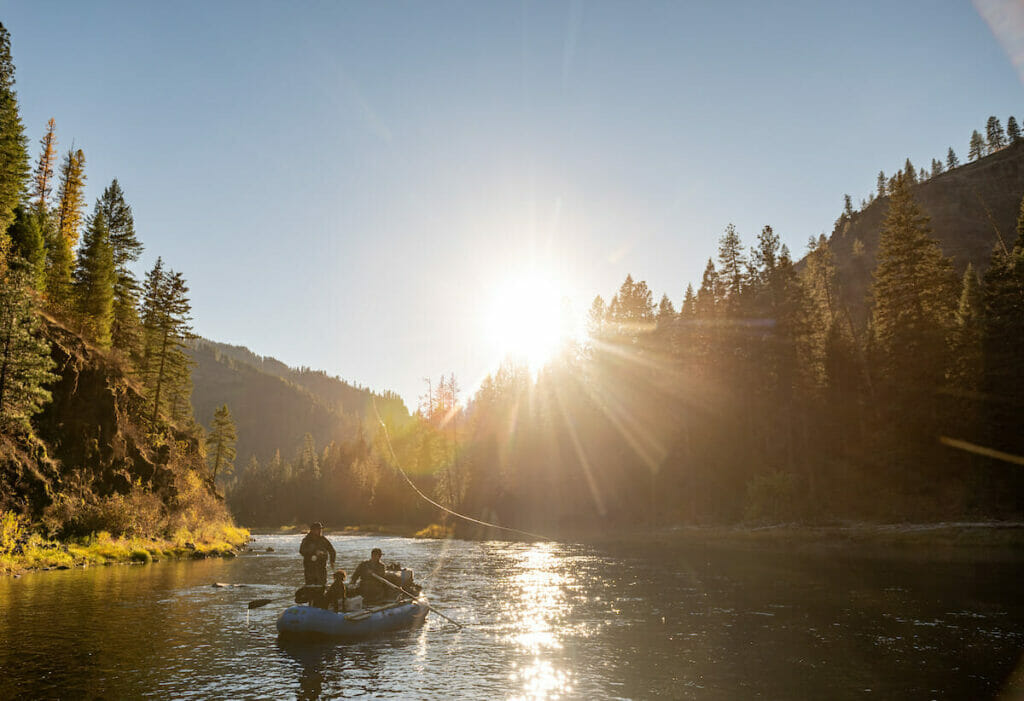
Climate change is a huge threat to wild and native trout and salmon, to our communities, and to the mission of Trout Unlimited. Warming water temperatures are putting pressure on trout and salmon throughout the nation. Drought is a huge and pressing problem in the Colorado River basin and other parts of the west. Wildfires threaten forest systems throughout the West. Flooding is a growing problem in many places, especially the mountainous parts of the Eastern U.S.
These laws give the nation a legitimate shot at enabling communities to adapt to these climate change-induced challenges, and gets to the heart of the problem, the root cause, by promoting the reduction of greenhouse gas emissions.
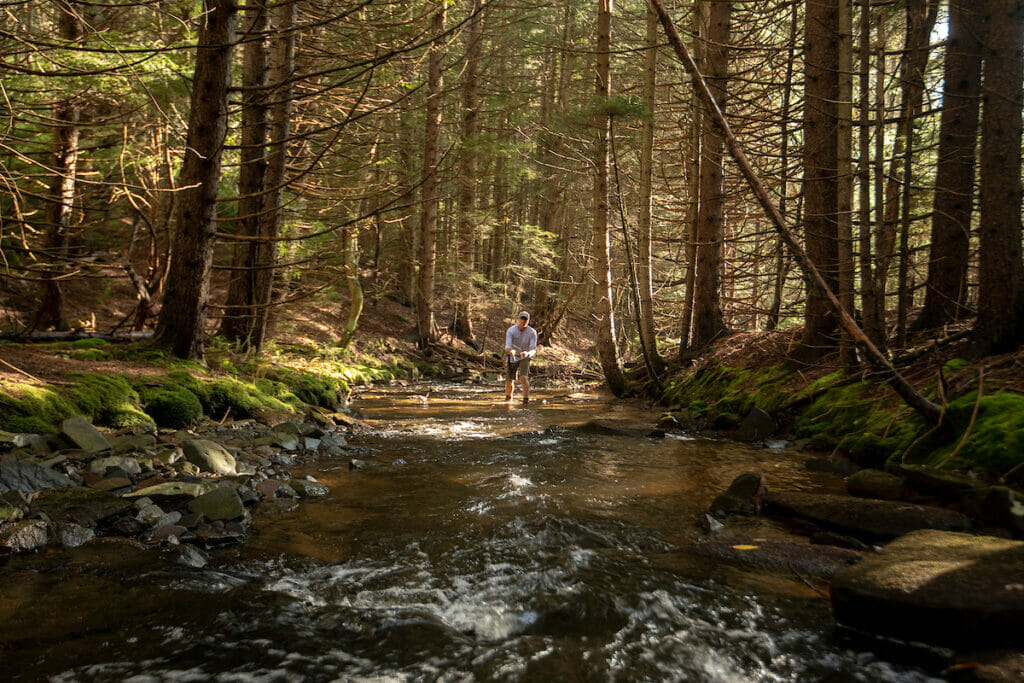
The climate provisions signed into law this month, primarily focused on speeding the development of renewable energy resources, offer a significant measure of hope. They are workable solutions that, if properly implemented, can help reduce the nation’s carbon emissions and protect communities, while also boosting the U.S. economy. We need to give these provisions time to work.
Upon the signing of the climate law, my boss, friend, and partner, Chris Wood, TU’s president and CEO, boiled it all down so beautifully. “These historic investments will make our waters cleaner and our fisheries and communities healthier. At the same time, they will create family-wage jobs as we take on the critical work of transitioning to a clean energy future. We know what we need to do to make our communities and rivers more resilient to the effects of climate change. The time for action is now. We thank the administration and Congress for their leadership.”
Take a moment to thank Congress for passing sensible climate measures to protect communities and fisheries
I’ll just encourage you to thank your members of Congress, and add my heartfelt thank you to our members, volunteer leaders, staff and partners who worked so hard to build support for these new laws. I have been in what seems like one million meetings with our TU Climate Change workgroup, congressional staff and members, partner organizations, state and federal agency partners. You cared so much about our mission, our cause, that you gave your time and resources to fulfill our mission. I salute your efforts with every fiber.
I am confident that we will look back on it as one of TU’s finest hours.
Steve Moyer is TU’s vice president for Government Affairs.
Learn more about TU’s work on climate change, and how you can help, at www.tu.org/climate.



